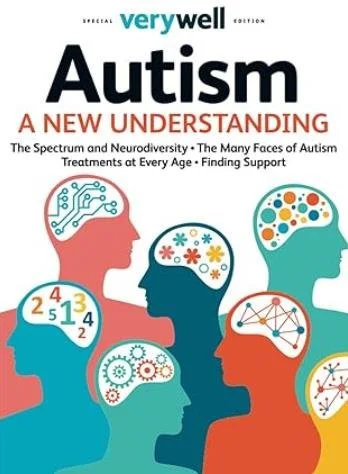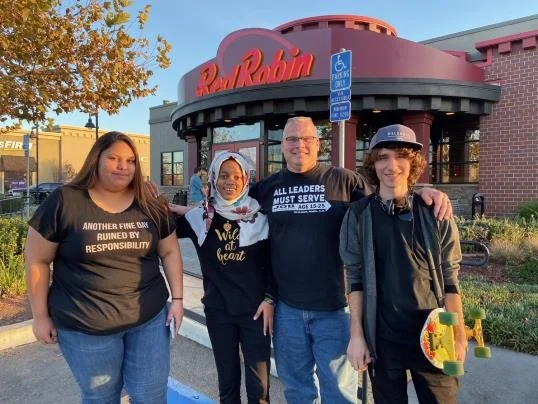ALMS Includes Everyone: Job Training Programs for Youth
All Leaders Must Serve (ALMS) is a grassroots nonprofit mentoring organization located in Woodland, CA. Within this quaint community, there are 1,722 students reported with disabilities of some sort, 2,043 English learners, not to mention homeless and foster youth. Imagine the many challenges the school district faces. Among the many challenges schools have today is orchestrating a learning environment with children on the spectrum, also known as Autism, Attention-deficit hyperactivity disorder (ADHD), or Dyslexia. These are a few of the disorders considered Neurodivergent, which refers to a different way the brain works. In the case of Autism, it seems like more and more children are falling into this category because the definition has changed dramatically over the years and so have our perceptions of what it means to be autistic.
Lisa Jo Rudy, author of “A New Understanding” from “Verywell Magazine,” which is a website providing health and wellness information by health professionals, confirmed to me that the methods embedded into the All Leaders Must Serve (ALMS) program can motivate youth on the spectrum and with learning disabilities. Regardless of the challenge, whether diagnosed or not, All Leaders Must Serve (ALMS) in Woodland, CA has been amazed and encouraged to see how well youth ages 15-25 who have struggled in traditional school transform and even thrive after completing the Job Readiness or Trust series offered by adult mentors when mentoring at risk youth.
The article shares that “young people on the spectrum may be chatty or nonverbal, brilliant or cognitively disabled, hypersensitive to sound and light, or comfortable playing percussion in a band. The behavior of Autistic children and their issues may be unusually quiet and unresponsive, or they may have extraordinary abilities while others struggle to complete basic activities of daily living.” I can’t imagine how challenging it must be for teachers with even a few Autistic children springled among the 30 or more students in the classroom, serving the vast needs of how the brain is processing, learning, and the behavior differences at the same time. Throw in a pandemic when children are forced to deal with the requirements of restricting social activity, and you have the makings of a mixed-up, fearful, and anxious teenager. No wonder our high schools are brimming with students who do not trust and are fearful of the transition into adulthood.
As a society, we have been focused on the outcome of the pandemic and the confusion of these young people, and we are still trying different ways to help them. In response to these challenges, ALMS meets in person to provide face-to-face mentor support that continues from high school to age 25, when the brain is more developed and able to cope with difficult decisions with more confidence. But it is also the perfect developmental stage for comprehension and lasting change.
The ALMS mentor programs for young adults have been very successful with students in all social, emotional, ethnic, and economic differences. One of the reasons for this is that the founder, herself, was challenged with Dyslexia – another form of neurodivergent before anyone understood her needs. She left home at 18, moved to California on her own, and learned to accept her challenge. With the help of her first mentor’s belief in her, she learned to thrive with her disability. Her journey and the challenges she faced along the way inspired her to create a program that would provide the same kind of support and guidance to other young people facing similar struggles. That’s why she wrote and founded ALMS – to encourage and inspire every student at a point when they are the most vulnerable to paralyzing fears, anxiety, and depression to have access to a teenage mentoring opportunity with a topic focus of interested. With ALMS, an anxious high school student preparing for graduation can find a sense of purpose and confidence – armed with communication skills and an understanding of what’s ahead This information can change the trajectory of their life - and ALMS has the track record to prove it!
ALMS recognizes that ‘all brains and all minds matter,’ quoting Barry M. Prizant, PhD, author of Uniquely Human: A Different Way of Seeing Autism. Because so many young people fit into the vast description of being neurodivergent, on the spectrum, or autistic – many undiagnosed, ALMS has discovered that treating all students that come to their program between the ages of 15-25 with respect and celebrating their unique differences connects individuals to their strengths while supporting them to overcome many of their challenges. ALMS provides a positive community where students are seen and accepted, which helps them prosper socially and emotionally.
When communication skills are taught, practiced, and celebrated over time, the growth substantially prepares them for employment, relationships, and life. The ALMS youth program has learned that rather than seeing the students for their flaws, ALMS sees every participant, regardless of their challenges, as a necessary and needed part of the community. The key is to help students understand what they need to know and celebrate what makes them unique while removing shame and guilt for who they are. If the students don’t see the direction of their uniqueness, ALMS opens doors and keeps them moving until we find it. We do this through mentor participated community service, helping individuals people in need, and Industry Tours. Whether students are at-risk, neurodivergent, or high achievers, everyone has insecurities, fears, or questions about how things work. Everyone needs to be seen and valued; if they don’t, they don’t come to ALMS.
Now, more than ever, schools and parents need the grass-roots support of ALMS youth programs and mentoring programs for young adults to offer training, career development, and partnership throughout the community. As funding for education becomes scarce and government agencies like Health and Human Services (HHSA) and CalWORKS deal with restrictions, ALMS will remain steady with the support of the community as a nonprofit that does not receive government funding. Donate to youth mentorship and support ALMS as we discover the unique brains available and put them into the workforce to serve their community and grow their skills.
Become a part of our family as a monthly giver.
Go to the website AllLeadersMustServe.org/donate.
Written by Jayne Williams ALMS Founder and Executive Director


